Commercial Roofing
Commercial Roofing Services
We’ve been installing roofing systems on commercial buildings throughout the New England area for over 25 years.
As certified installers of the top manufacturers, we can help get your commercial project completed on time and on budget, as well as built to last.
- Built-Up Roofing Systems
- Modified Bitumen Roofing Systems
- Metal
- Steep Slope
- Comprehensive Repair and Maintenance
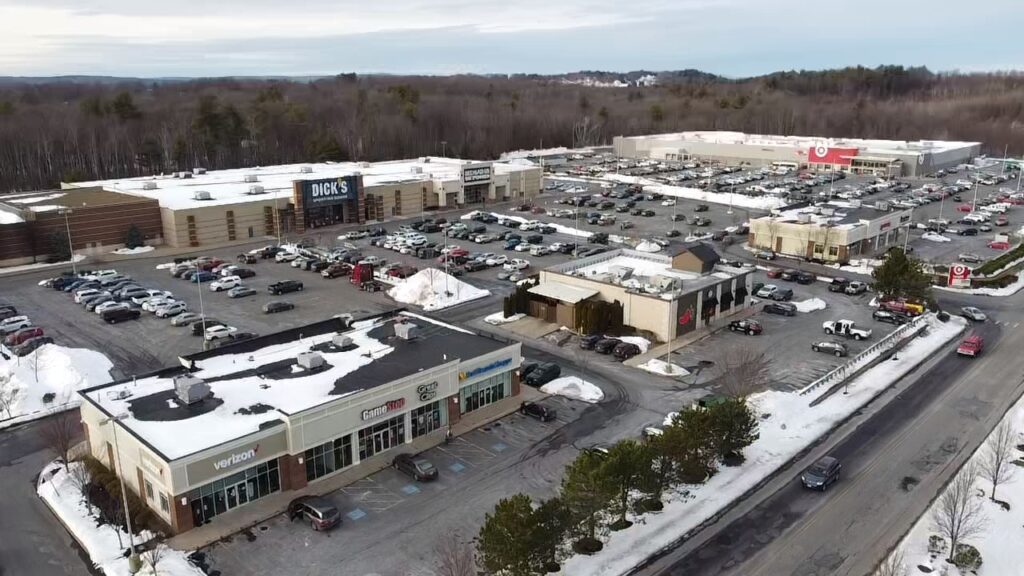
Built-Up Roofing Systems
Among the oldest roofing systems available on the market, built-up roofing consists of 3-5 layers for enhanced protection, especially in extreme climatic conditions with wide ranges of low and high temperatures.
Sometimes called BUR for short, built-up roofing has been around for more than 100 years.
Modified Bitumen Roofing Systems
A modified bitumen roof combines asphalt and a unique chemical polymer for flexibility and temperature resistance. It can be applied in multiple layers, in several ways (self-adhesive sheets, hot-mopped asphalt, torch applied or cold-applied adhesives), in both hot and cold temperatures, making it a viable option for installation through all four seasons.
The seams are melted together to form a secure bond. They are rated against wind, fire, and hail which means they are resistant to damage during a storm.
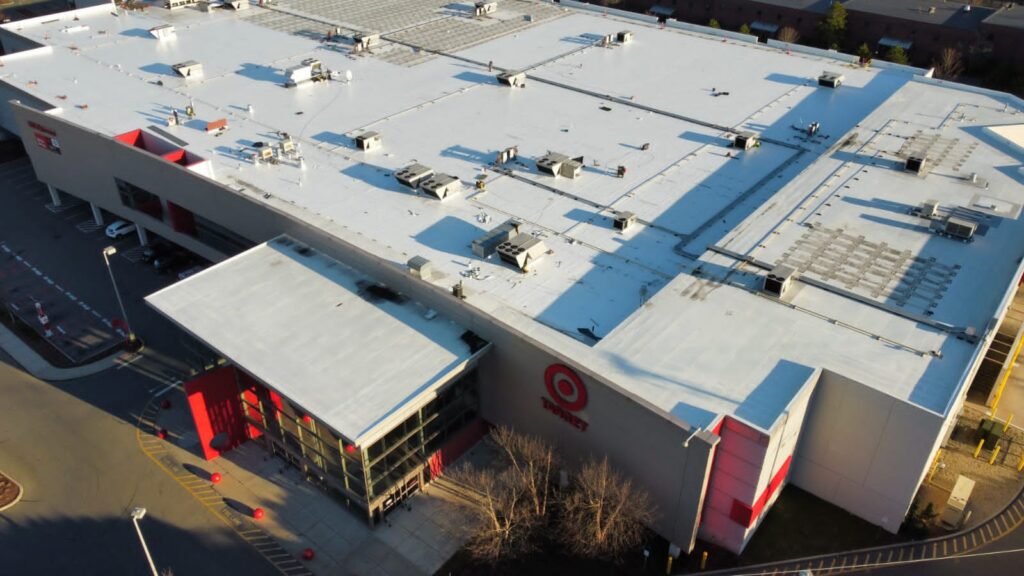
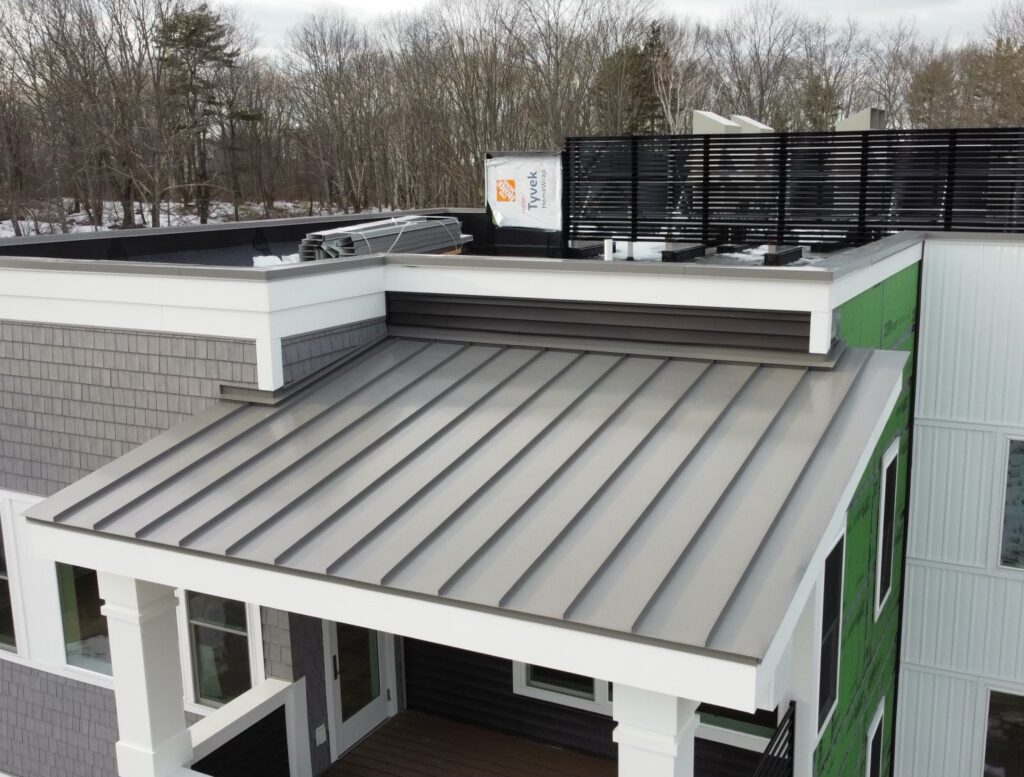
Metal
Metal roofing is known for its aesthetics, longevity, and durability. Used on both low-slope and steep roofs, many building owners prefer the look and durability that comes with metal roofs.
Building and homeowners are now opting for certain types of metal roofs to take advantage of the longer lifespan and durability compared to a traditional shingle roof.
Steep Slope
Steep slope roofing refers to roofing materials suitable for roofs that have slopes of 3:12 or higher. While this is mainly seen in residential properties, commercial buildings sometimes have this style of roof, usually because it’s a design feature of the building, e.g., a hotel or university.
The roof slope affects the materials that can be used which range from asphalt composition roll, fiberglass 3-tab shingle, fiberglass laminate (architectural) shingle, specialty asphalt shingle, through to wood shakes, wood shingle, clay, concrete tile, slate, and metal.
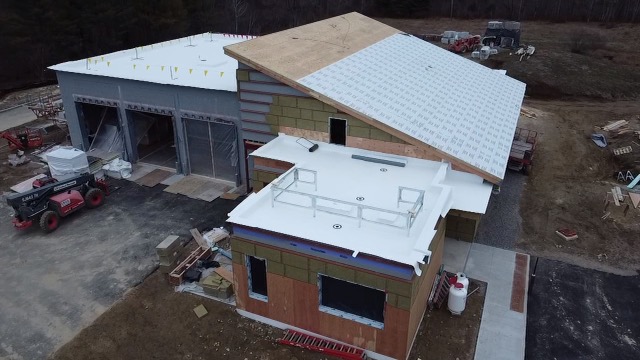
Other Commercial Roofing Services
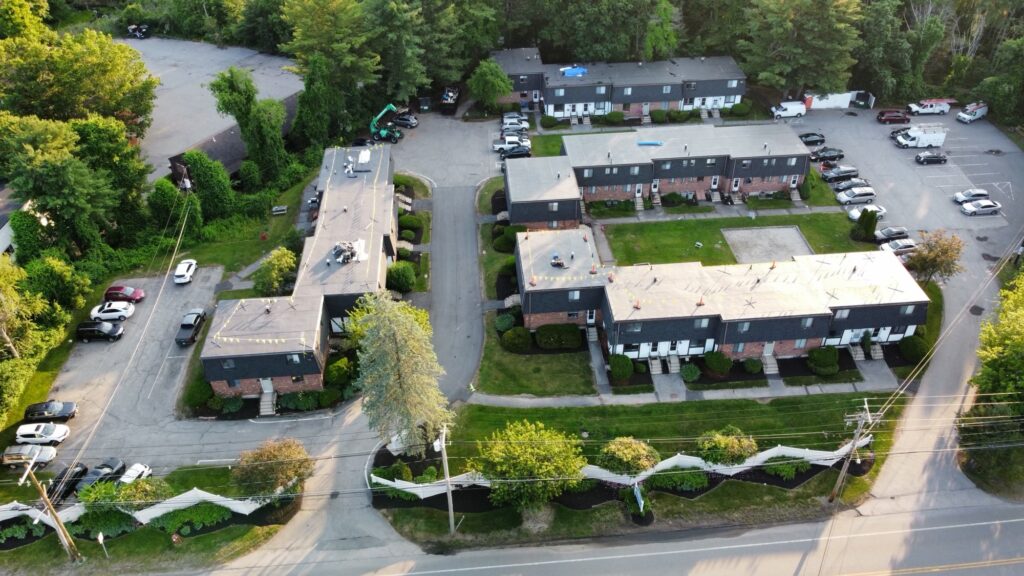
Liquid Applied/Waterproofing Roofing
A liquid applied roofing membrane is constructed in place with resin and a reinforcing polyester. It offers superior waterproofing capabilities because it’s able to reach those harder to get to areas. It is sprayed on, or roller applied, usually in two separate coats.
A liquid roof, due to the nature of how it is applied doesn’t create invasive disturbances and or emit harmful or strong odors, making it a good option for when businesses need to stay open during construction.
Coatings
This fully adhered coating consists of a fluid-applied membrane. It can stretch and return to its original shape.
There are many types of roof coatings, but the most common include acrylic and silicone. Best suited for metal roofs, coatings can help keep buildings cool, reduce energy consumption, protect against leaks and extend the life of a commercial roof.
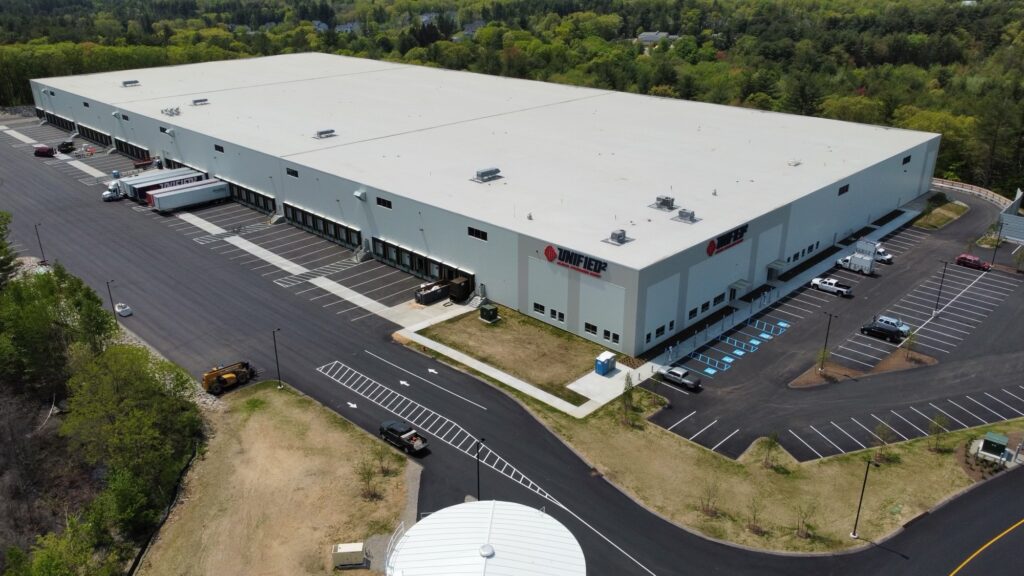
Spray Polyurethane Foam
The SPF roof system is composed of two liquid chemical compounds called isocyanate and polyol that form the base of an adhered roof system. A protective surface is then applied to the foam to provide an added barrier against the elements.
Due to the fact that SPF is applied as a liquid, it is seamless and self-adhering with no fasteners required. This versatile installation method allows it to conform to tight and awkward spaces on the roof. SPF roof systems are waterproof, resistant to hail and wind damage and provide the highest R-value (the measure of resistance to heat) of any roofing material.
SPF roof systems can be customized to fit particular drainage requirements. Adequate drainage is particularly important in these systems because of their natural sensitivity to water.
